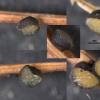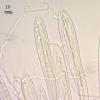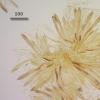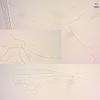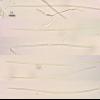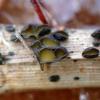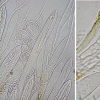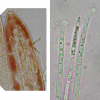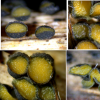
28-02-2026 14:43
A new refrence desired :Svanidze, T.V. (1984) Novy

01-03-2026 18:46
 Robin Isaksson
Robin Isaksson
Hi! This species i se from time to time in the

27-02-2026 17:51
 Michel Hairaud
Michel Hairaud
Bonjour, Quelqu'un peut il me donner un conseil p

27-02-2026 16:17
 Mathias Hass
Mathias Hass
Hi, Found this on Betula, rather fresh fallen twi

01-03-2026 18:02
 Francois Guay
Francois Guay
I found this mystery Helotiales on an incubated le

01-03-2026 14:10
 Antonio Couceiro
Antonio Couceiro
Hola, me gustaria conocer opiniones sobre este tem
This interesting species has showed up at Eriophorum vaginatum leaves in autumn, though i was collecting immature structures in summer, but they were not ready then. Finally after the first frosts it was found with fully developed structures. Hysterothecia densely cover very soft dead leaves laying at sphagnum surface.
The structures fit well with description in Johnston and Scheuer ("Lophodermium eriophori comb. nov." Mycotaxon 87 (2003): 489-492.).
Hysterothecia first pustulate, then outer layer bursting longitudinally or radially, enlarge to become turbinate, ellipsoid or more often circular in outline, hymenium yellow to orangish, outer surface black, to 1.5 mm by long axis, 0.5 mm high.
Asci clavate, with crozier, conical tip, inamyloid, 250 x 20 mk; paraphyses branched in upper part (tree-like), end branches circinate, 2.5–3 mk broad at upper part; spores needle-shaped, with loose sheath, with appendix at obtuse end, 150 (132–173) x 3.3 (2.9–3.9) (n=10).?

As you probably noticed in myco litterature, this species has very rarely been collected.
Brigitte Capoen and I luckily found it last year on October 4 in the main peat bog of SAnta Maria in the Somiedo paradise, (Spain, Asturias,)
Here it was Eriophorum angustifolium
I hereby join images I showed in my presenttaion at the Somiedo Ascomycota 2013 congress in last June.
The main features of your collection do suit ours.
Amitiés
Michel
that is interesting. I will look at other substrates, Er. russeolum as well, but untill now it was only at Er. vaginatum here. Could be abundant occasionally.
Nina.

